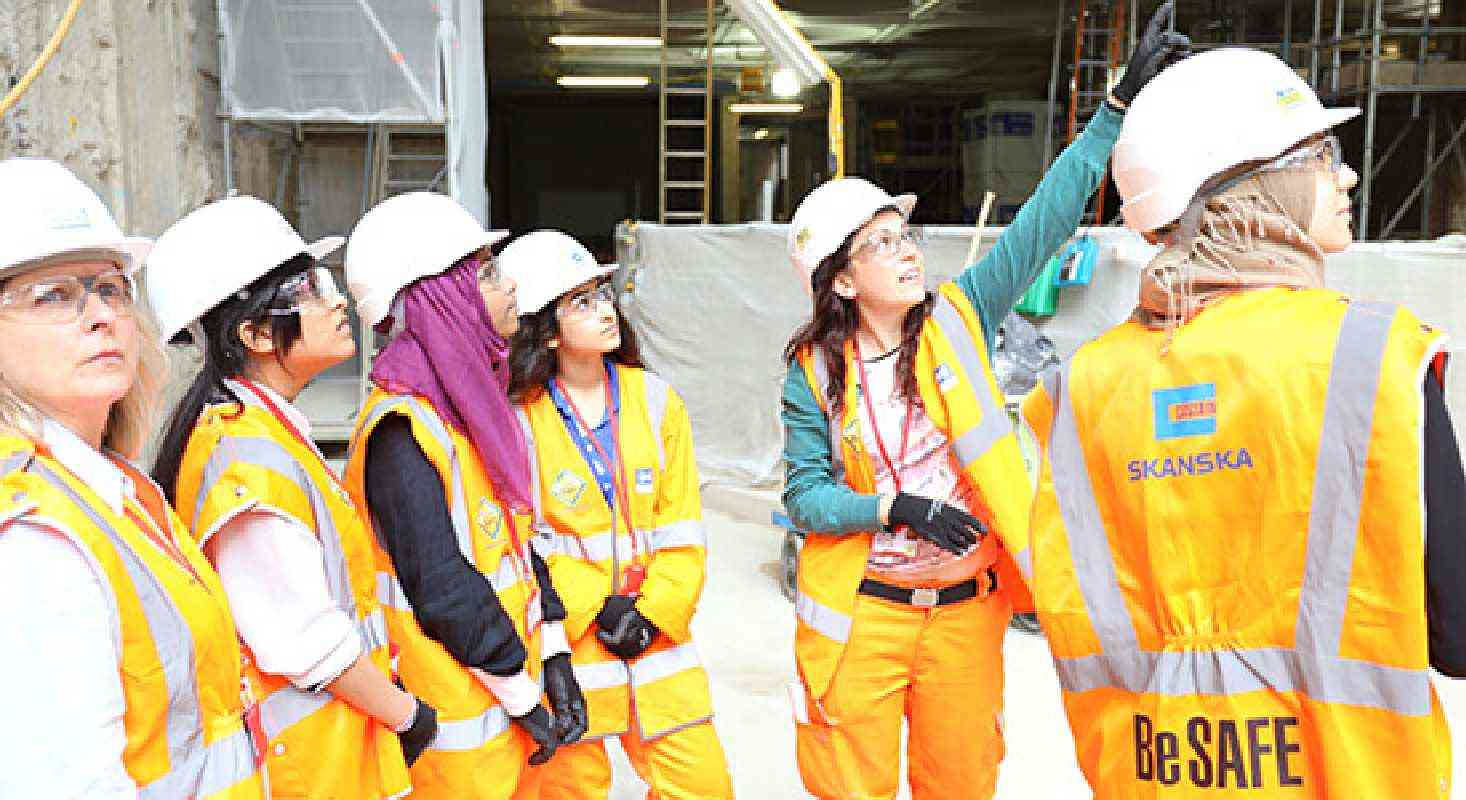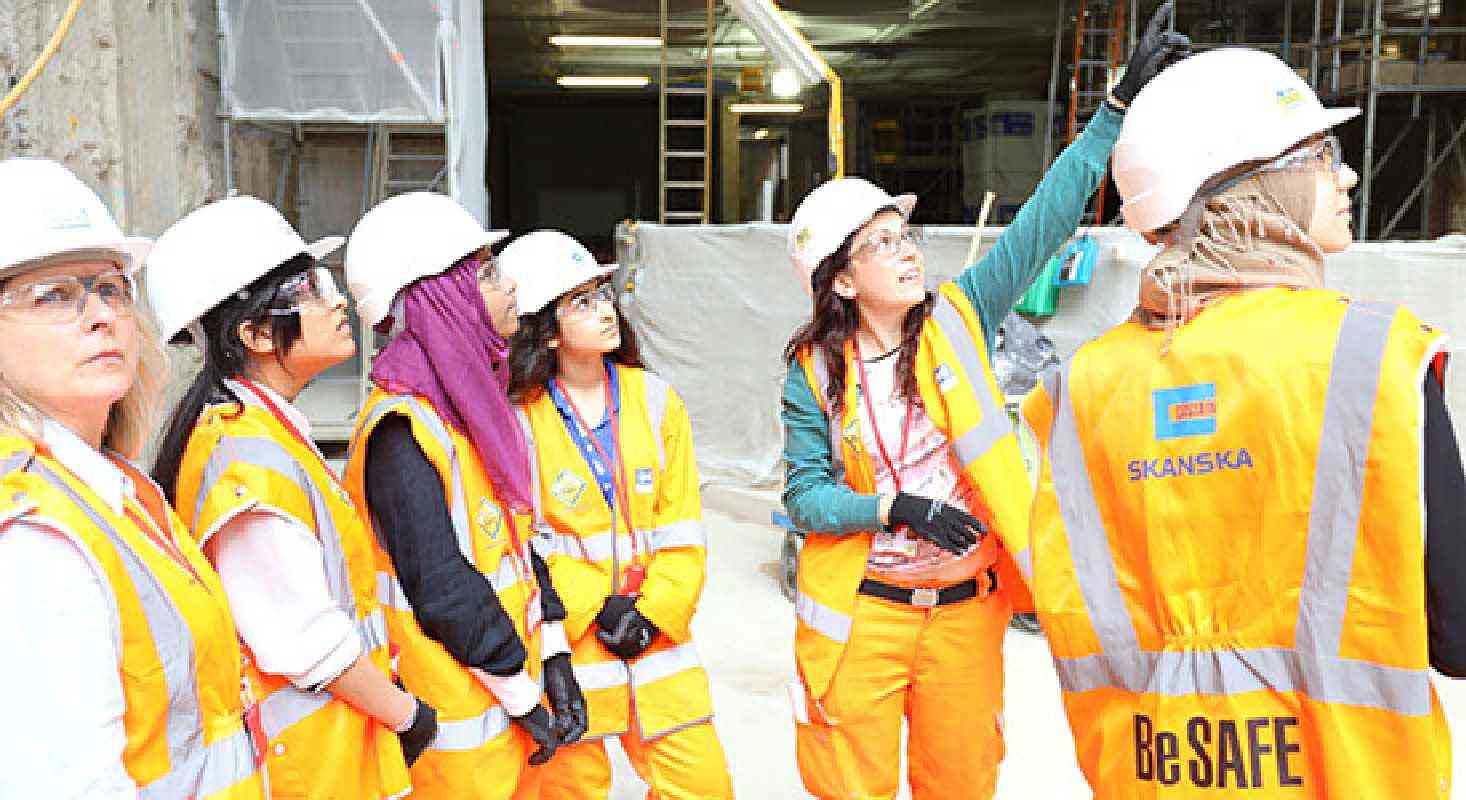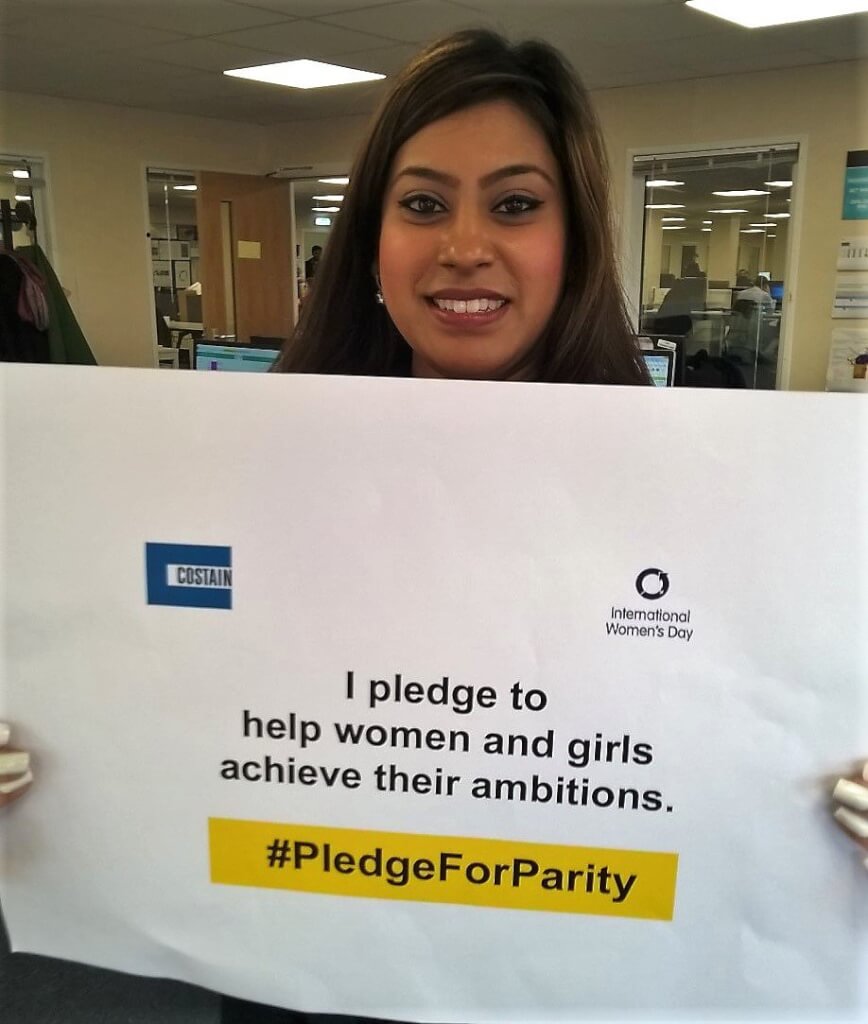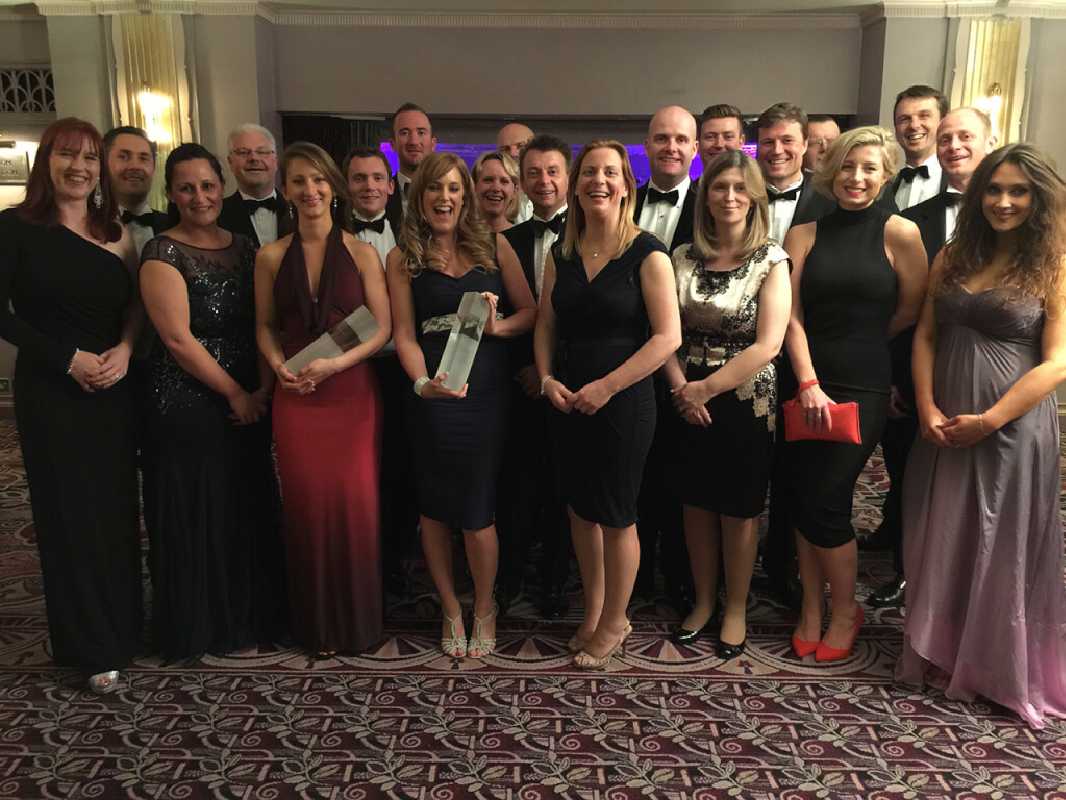
This article was written in collaboration with Costain. Explore Costain’s graduate jobs, graduate programmes and placement opportunities in the Debut app.
The engineering sector has undergone a significant transformation over the last few years. Whilst it may have been considered male-dominated in the past, improved access to opportunities and increased social mobility is encouraging diversity in the sector. This is leading to more women entering the workforce to take advantage of the amazing opportunities on offer.
With this development, many employers in the industry are beginning to recognise the importance of supporting this new female talent. With the help of a progressive and supportive working environment, women in the industry are making waves – and Costain are at the forefront of this.
We grabbed a few minutes with three of their amazing female employees currently at work in the engineering sector.
First steps – getting into engineering

Let’s start at the very beginning. For many women, a career in engineering isn’t necessarily something that is showcased at school – but as Francesca Loader, Graduate Civil Engineer, Demi Ademuyewo, Mechanical Engineer, and Georgia Kalogeraki, Graduate Civil Engineer, prove, if you’ve a natural curiosity in maths, how things work and the process of evolving an idea from paper to reality, engineering may be the industry for you.
Georgia: “I was intrigued to join the world of engineering at a very early stage. Mainly because I was so impressed by the fact that a few lines on a paper could be transformed into a real life structure available to be used by society.”
A small spark of interest in the basics of engineering, and a career can be born.
Francesca: “I always enjoyed maths whilst growing up, and wanted to explore career options where I could use use these skills practically.”
Sometimes, though it’s just about wanting to “change the world”, as Demi explains.
Who run the world? Female engineers
Forget the phrase “male-dominated”; as stated more and more women are entering the engineering sector and taking it by storm. The advent of women in the industry is helping to create more diverse and inclusive teams, and a more balanced working environment.
Francesca: “I wasn’t overly fazed by the fact the industry is male-dominated. Luckily my parents were very supportive”; this, paired with the fact she “met a number of female engineers early on”, helped cement her passion and career path.
“It never fazed me,” Demi also agreed. “Most told me it would be hard – and it was – but it wasn’t impossible.”
For Georgia, the stigma was completely new to her as she comes from a country where the balance is less lopsided: “It was actually a new thing to me realising how male dominated the UK’s construction industry is, mainly because in my native country, Greece, it is very ordinary to see female engineers and architects.”
Nevertheless, she was unabashed by the adjustment thanks to the noticeable effort companies like Costain are making to be good allies. Georgia has received heaps of support and guidance from her male counterparts, and believes that men in the industry are “very sensitive to the matter” of equality and representation.
“All managers, directors, workers and foremen I have come across have been very helpful and mindful to not make me feel uncomfortable. On the contrary, most of them assisted me to progress and opened my horizons.”
Every challenge you face makes you stronger

As with any industry there are certain challenges to overcome, and the transition out of university into a multi-faceted industry like engineering is a tough one.
This was true from the outset for Georgia, who struggled to break into engineering after getting a 2:2 in her degree. After encountering barriers, she managed to secure two weeks of work experience on the Crossrail project and the chance to pitch herself to the Project Manager. The PM hired her on the spot, and she’s been an ace up the Costain sleeve ever since.
“It took a lot of struggle and networking to prove my worth to the project manager,” she recalls, before reiterating that there is a place for you in the world of engineering even if you have a 2:2: “A lot of the time, you meet graduates that are far more hard working and motivated than others with better grades, so it’s essential that we do not exclude these people.”
Another area where you can encounter difficulties is managing people. As Francesca found, in a diverse office with plenty of different perspectives, co-workers will occasionally disagree. A good manager focuses on the positives and breeds a collaborative atmosphere.
“I have worked with a number of challenging personalities across various jobs. I have learned how to manage these by highlighting their strengths and using these to my advantage,” she says.
“Teamwork is a key contributor to the success of a project and I therefore hope that coming into contact with difficult people and learning how to manage them will assist me in the future when managing teams.”
The best employers will facilitate your growth
Although these young women developed themselves through a lot of independent hard work, any employer who believes in supporting their female employees will do their best to amplify that growth – something Costain is often praised for:
“Costain is an excellent company willing to provide me and my colleagues with anything we need,” Demi said. “So long as they know that we are trustworthy and care about Costain as a business.”
Georgia remarked that Costain are not only willing to develop your technical prowess, but your soft skills too: “Through networking, I have been involved with a number of Costain events which has helped to develop my communication skills and confidence.”
In Francesca’s case, they were willing to support her even before university: “I was just 17 when I was first offered sponsorship by Costain. I had very little experience within the industry. I gained a wealth of site experience through placements whilst completing my degree, which has been extremely beneficial since graduating.”
You can achieve more than you could ever imagine

After making the decision to become engineers, it’s safe to say that these women never looked back. Since joining Costain, they have gone from strength to strength and gained something precious from the experience.
For Demi, it was the feeling of a job well done: “I think my proudest moment so far was seeing a vessel which I was given the responsibility for, from concept to commission, in the workshop,” she said. “I felt a ‘wow’ moment, like I really had made this vessel!”
For Francesca, it was overcoming a fear by having the opportunity to promote Costain at events: “I have always struggled with public speaking and therefore I am very proud of the fact I have been repeatedly asked to attend these events and can be trusted to represent the company.”
For Georgia, it was overdue recognition for being a top engineer in her field. Her work at Costain has landed her on numerous awards shortlists, including The Telegraph’s Top 50 Women in Engineering under 35: “By the age of 24 I could have never imagined accomplishing this much in what I love doing the most.”
Whatever your career goals as a young woman in engineering, the message from this amazing Costain trio is clear: keep pushing. A fulfilling career is more than just possible; with the right amount of dedication, talent and support, it’s a sure thing.
Connect with Debut on Facebook, Twitter, and LinkedIn for more careers insights.


